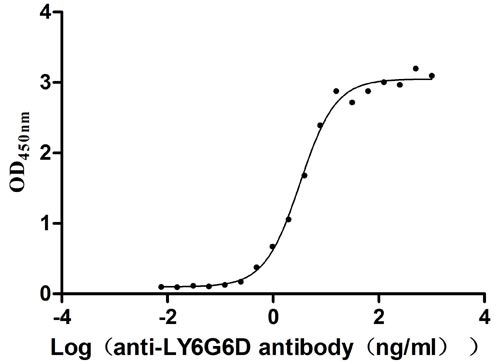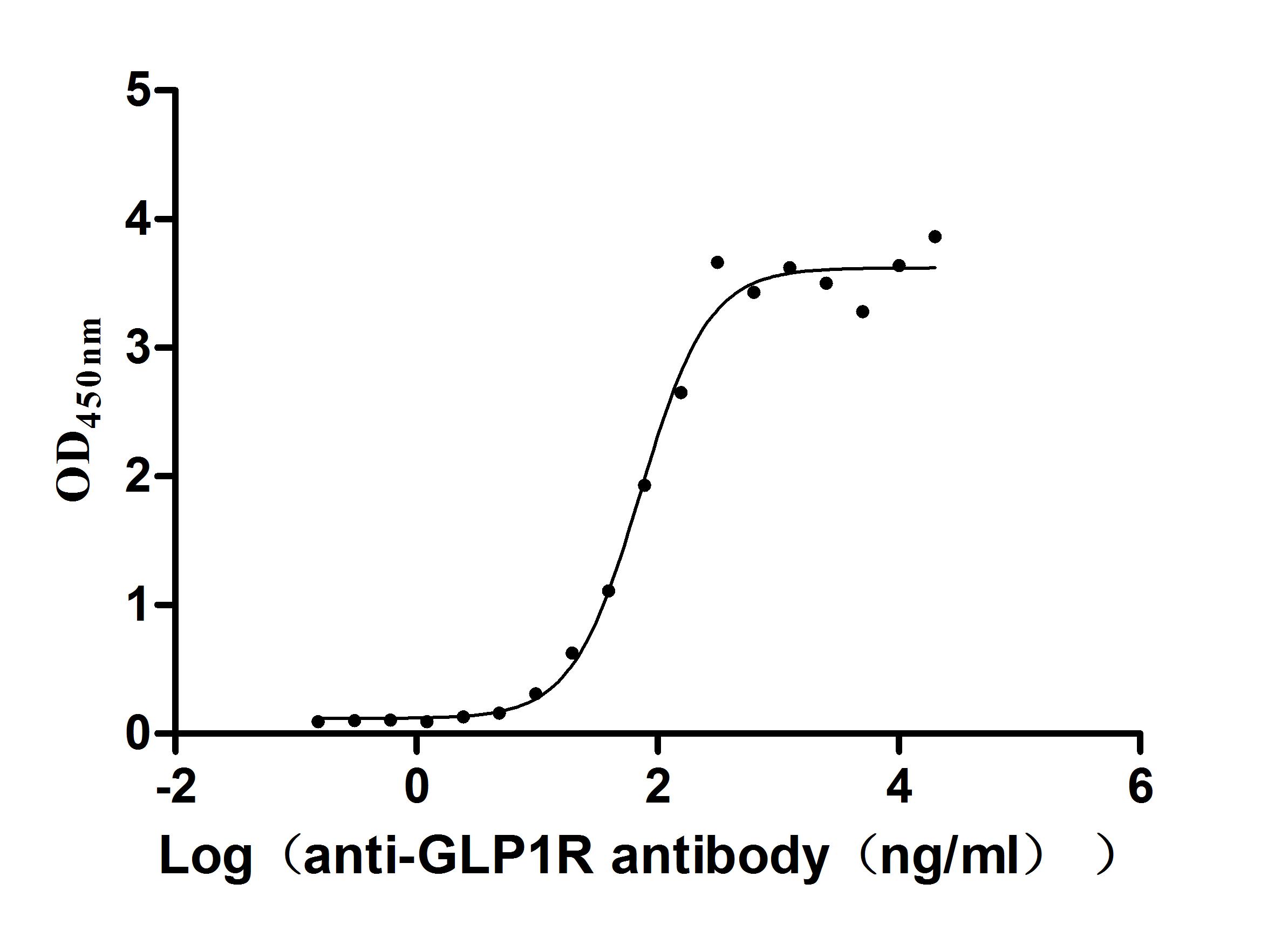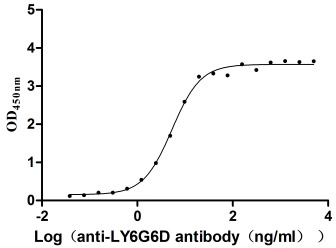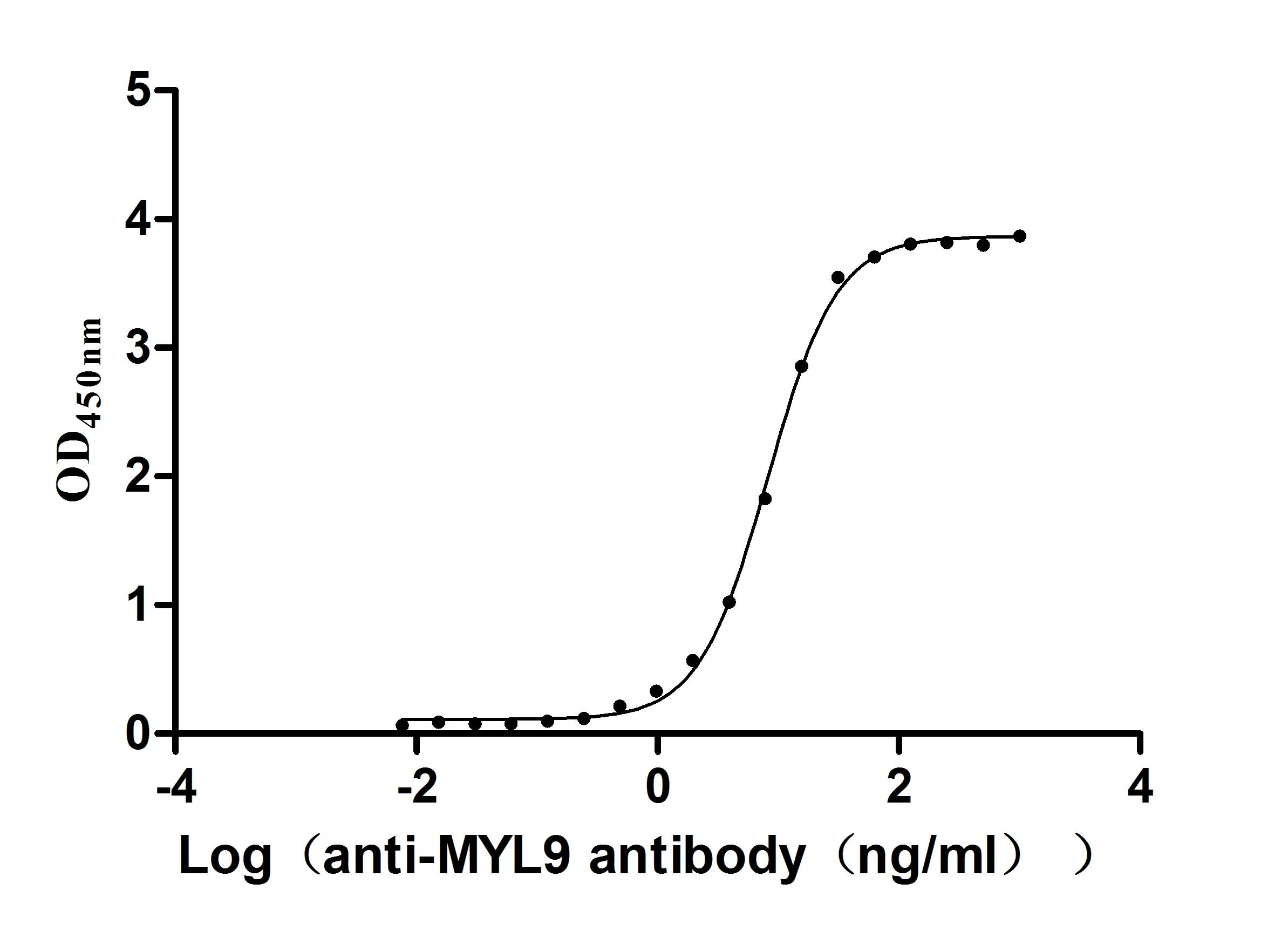Recombinant Human 1-phosphatidylinositol 4,5-bisphosphate phosphodiesterase zeta-1 (PLCZ1)
-
货号:CSB-YP768240HU
-
规格:
-
来源:Yeast
-
其他:
-
货号:CSB-EP768240HU-B
-
规格:
-
来源:E.coli
-
共轭:Avi-tag Biotinylated
E. coli biotin ligase (BirA) is highly specific in covalently attaching biotin to the 15 amino acid AviTag peptide. This recombinant protein was biotinylated in vivo by AviTag-BirA technology, which method is BriA catalyzes amide linkage between the biotin and the specific lysine of the AviTag.
-
其他:
-
货号:CSB-BP768240HU
-
规格:
-
来源:Baculovirus
-
其他:
-
货号:CSB-MP768240HU
-
规格:
-
来源:Mammalian cell
-
其他:
产品详情
-
纯度:>85% (SDS-PAGE)
-
基因名:
-
Uniprot No.:
-
别名:1 phosphatidylinositol 4,5 bisphosphate phosphodiesterase zeta 1; 1-phosphatidylinositol-4; 5-bisphosphate phosphodiesterase zeta-1; MGC149685; NYD SP27; Phosphoinositide phospholipase C zeta 1; Phosphoinositide phospholipase C-zeta-1; Phospholipase C zeta 1; Phospholipase C-zeta-1; PI phospholipase C zeta 1; PLC zeta 1; PLC-zeta-1; PLCZ1; PLCZ1_HUMAN; PLCzeta; Testis development protein NYD SP27; Testis development related NYD SP27; Testis-development protein NYD-SP27
-
种属:Homo sapiens (Human)
-
蛋白长度:Full length of isoform 2
-
表达区域:1-415
-
氨基酸序列MEMRWFLSKIQDDFRGGKINLEKTQRLLEKLDIRCSYIHVKQIFKTSDYPVVLSLENHCSTAQQEVMADNLQATFGESLLSDMLDDFPDTLPSPEALKFKILVKNKKIGTLKETHERKGSDKRGDNQDKETGVKKLPGVMLFKKKKTRKLKIALALSDLVIYTKAEKFKSFQHSRLYQQFNENNSIGETQARKLSKLRVHEFIFHTRKFITRIYPKATRADSSNFNPQEFWNIGCQMVALNFQTPGLPMDLQNGKFLDNGGSGYILKPHFLRESKSYFNPSNIKEGMPITLTIRLISGIQLPLTHSSSNKGDSLVIIEVFGVPNDQMKQQTRVIKKNAFSPRWNETFTFIIHVPELALIRFVVEGQGLIAGNEFLGQYTLPLLCMNKGYRRIPLFSRMGESLEPASLFVYVWYVR
-
蛋白标签:Tag type will be determined during the manufacturing process.
The tag type will be determined during production process. If you have specified tag type, please tell us and we will develop the specified tag preferentially. -
产品提供形式:Lyophilized powder
Note: We will preferentially ship the format that we have in stock, however, if you have any special requirement for the format, please remark your requirement when placing the order, we will prepare according to your demand. -
复溶:We recommend that this vial be briefly centrifuged prior to opening to bring the contents to the bottom. Please reconstitute protein in deionized sterile water to a concentration of 0.1-1.0 mg/mL.We recommend to add 5-50% of glycerol (final concentration) and aliquot for long-term storage at -20℃/-80℃. Our default final concentration of glycerol is 50%. Customers could use it as reference.
-
储存条件:Store at -20°C/-80°C upon receipt, aliquoting is necessary for mutiple use. Avoid repeated freeze-thaw cycles.
-
保质期:The shelf life is related to many factors, storage state, buffer ingredients, storage temperature and the stability of the protein itself.
Generally, the shelf life of liquid form is 6 months at -20°C/-80°C. The shelf life of lyophilized form is 12 months at -20°C/-80°C. -
货期:Delivery time may differ from different purchasing way or location, please kindly consult your local distributors for specific delivery time.Note: All of our proteins are default shipped with normal blue ice packs, if you request to ship with dry ice, please communicate with us in advance and extra fees will be charged.
-
注意事项:Repeated freezing and thawing is not recommended. Store working aliquots at 4°C for up to one week.
-
Datasheet :Please contact us to get it.
相关产品
靶点详情
-
功能:The production of the second messenger molecules diacylglycerol (DAG) and inositol 1,4,5-trisphosphate (IP3) is mediated by activated phosphatidylinositol-specific phospholipase C enzymes. In vitro, hydrolyzes PtdIns(4,5)P2 in a Ca(2+)-dependent manner. Triggers intracellular Ca(2+) oscillations in oocytes solely during M phase and is involved in inducing oocyte activation and initiating embryonic development up to the blastocyst stage. Is therefore a strong candidate for the egg-activating soluble sperm factor that is transferred from the sperm into the egg cytoplasm following gamete membrane fusion. May exert an inhibitory effect on phospholipase-C-coupled processes that depend on calcium ions and protein kinase C, including CFTR trafficking and function.
-
基因功能参考文献:
- PLCzeta and PAWP impairments may be one of the possible etiologies of decreased fertility in Oligoasthenoteratozoospermia PMID: 28954204
- Low PLCZ1 expression is associated with globozoospermia with DPY19L2 deletion. PMID: 29339016
- we evaluate sperm motility and the proportion of sperm expressing PLC zeta in 71 males (22-54 years; 44 fertile controls and 27 infertile patients), along with total levels and localisation patterns of PLC zeta within the sperm head. PMID: 27270687
- findings suggest that human PLCZ1 RNA is a better therapeutic agent to rescue human oocytes from failed activation, leading to normal and efficient development. PMID: 28320563
- The value of PAWP and PLCzeta as indicators of sperm quality was studied. PMID: 28076980
- The role of the PLCZ1 protein in male infertility, and its expression regulation and therapeutic potential have been discussed. (Review) PMID: 26700242
- latest developments that have begun to unravel the vital role of PLCzeta at mammalian fertilisation and decipher its unique mechanism of action within the fertilising egg. PMID: 29061915
- The findings highlight the importance of PLCzeta at fertilization and the vital role of the C2 domain in PLCzeta function, possibly due to its novel binding characteristics. PMID: 28270562
- The findings of the present study illustrate that one of the etiologies of reduced fertility associated with varicocele is the low expression of PLCzeta PMID: 27612872
- In male infertility, the absence of PLCZ1 alone is sufficient to prevent oocyte activation irrespective of the presence of PAWP. PMID: 26721930
- Human PLCzeta elicited the characteristic Ca(2+) oscillations present at mammalian fertilization, which produced oocyte activation and embryo development. PMID: 26116451
- Study further supports the fundamental role of PLCzeta in the oocyte activation process. PMID: 26054556
- Phospholipase C-zeta deficiency is associated with repetitive oocyte fertilization failure during ovarian stimulation for in vitro fertilization. PMID: 26174123
- I discuss the recent advances in our knowledge of the intriguing biochemical and physiological properties of sperm PLCz and postulate potential roles for PLCz in terms of clinical diagnosis and therapy for certain forms of male infertility PMID: 26009178
- Data suggest that PAWP (WW domain-binding protein 2-like) from sperm (rather than PLCZ [phospholipase C zeta] from sperm) acts as the 'sperm factor' within the egg at fertilization and is involved in 'egg activation' and embryogenesis. [REVIEW] PMID: 25722320
- in patients with normal SA parameters but with repeated low fertilization or outright failed fertilization results after ICSI, abnormal PLCZ1 function should be considered as the underlying mechanism responsible for the failure of fertilization PMID: 24756570
- Human PLCzeta exhibits superior fertilization potency over mouse PLCzeta in triggering the Ca(2+) oscillations required for mammalian oocyte activation. PMID: 24478462
- Male infertility is associated with the aberrant expression, localisation, structure and function of PLCzeta in human sperm. [review] PMID: 23916605
- PLCzeta may be a significant factor in human fertility with potential therapeutic capacity. [Review] PMID: 24157362
- investigation of expression level and localization pattern of PLCZ1 in sperm from three infertile patients with globozoospermia (i.e., patients who exhibited abnormal sperm with round heads) [CASE REPORT] PMID: 22940771
- Loss-of-activity mutations in PLCzeta may contribute not only toward male infertility but also male subfertility in cases where PLCzeta is mutated on a single allele. PMID: 22633260
- PLCzeta is compartmentalized as part of the acrosome early in human and mouse spermiogenesis and is secreted during sperm maturation in the epididymis. PMID: 22428063
- Phospholipase C-zeta-induced Ca2+ oscillations cause coincident cytoplasmic movements in human oocytes that failed to fertilize after intracytoplasmic sperm injection. PMID: 22217962
- a maternally inherited autosomal point mutation in human phospholipase C zeta (PLCzeta) leads to male infertility PMID: 22095789
- PLCzeta may have a role in sperm inducing oocyte activation after ICSI PMID: 21896550
- Male infertility-linked point mutation disrupts the Ca2+ oscillation-inducing and PIP(2) hydrolysis activity of sperm PLC gamma. PMID: 21204786
- confirm the previously proposed inhibitory role of NYD-SP27 in the PLC pathway and demonstrate that the suppression of its expression could result in an enhancement of ATP-stimulated Ca(2+) dependent pancreatic anion secretion. PMID: 17196844
- narrow spectrum of PLCZ1 activity indicates that it is modulated by tissue-restricted accessory factors PMID: 17933795
- Human PLCzeta can readily activate mouse oocytes, however, effective development to blastocyst stages is only achieved within a specific window of hPLCzeta-luc protein expression levels. PMID: 18003622
- All PLCZ1 proteins including fish could induce Ca(2+) oscillations in mouse eggs, but the activity was variable in the order of human >> mouse > medaka >> rat, estimated from minimal RNA concentration to induce Ca(2+) spikes. PMID: 18322275
- Human sperm devoid of PLCZ1 fail to induce Ca(2+) release and are unable to initiate the first step of embryo development. PMID: 18924610
显示更多
收起更多
-
相关疾病:Spermatogenic failure 17 (SPGF17)
-
亚细胞定位:Nucleus. Cytoplasm, perinuclear region.
-
组织特异性:Expressed specifically in testis and sperm. Weakly expressed in pancreatic-duct cells. Up-regulated in pancreatic-duct cells from patients with cystic fibrosis.
-
数据库链接:
HGNC: 19218
OMIM: 608075
KEGG: hsa:89869
STRING: 9606.ENSP00000266505
UniGene: Hs.743832
Most popular with customers
-
Recombinant Paguma larvata Angiotensin-converting enzyme 2 (ACE2), partial (Active)
Express system: Mammalian cell
Species: Paguma larvata (Masked palm civet)
-
Recombinant Human Heat-stable enterotoxin receptor (GUCY2C), partial (Active)
Express system: Mammalian cell
Species: Homo sapiens (Human)
-
Recombinant Human Microtubule-associated protein tau (MAPT) (Active)
Express system: Mammalian cell
Species: Homo sapiens (Human)
-
Recombinant Human Lymphocyte antigen 6 complex locus protein G6d (LY6G6D) (Active)
Express system: Yeast
Species: Homo sapiens (Human)
-
Recombinant Human Glucagon-like peptide 1 receptor (GLP1R), partial (Active)
Express system: Mammalian cell
Species: Homo sapiens (Human)
-
Recombinant Macaca fascicularis lymphocyte antigen 6 family member G6D (LY6G6D) (Active)
Express system: Yeast
Species: Macaca fascicularis (Crab-eating macaque) (Cynomolgus monkey)
-
Recombinant Human Myosin regulatory light chain 12B(MYL12B) (Active)
Express system: E.coli
Species: Homo sapiens (Human)


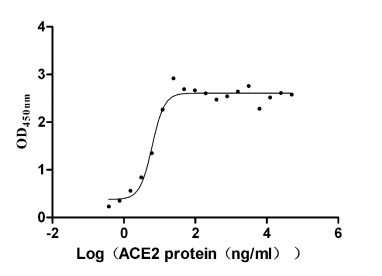
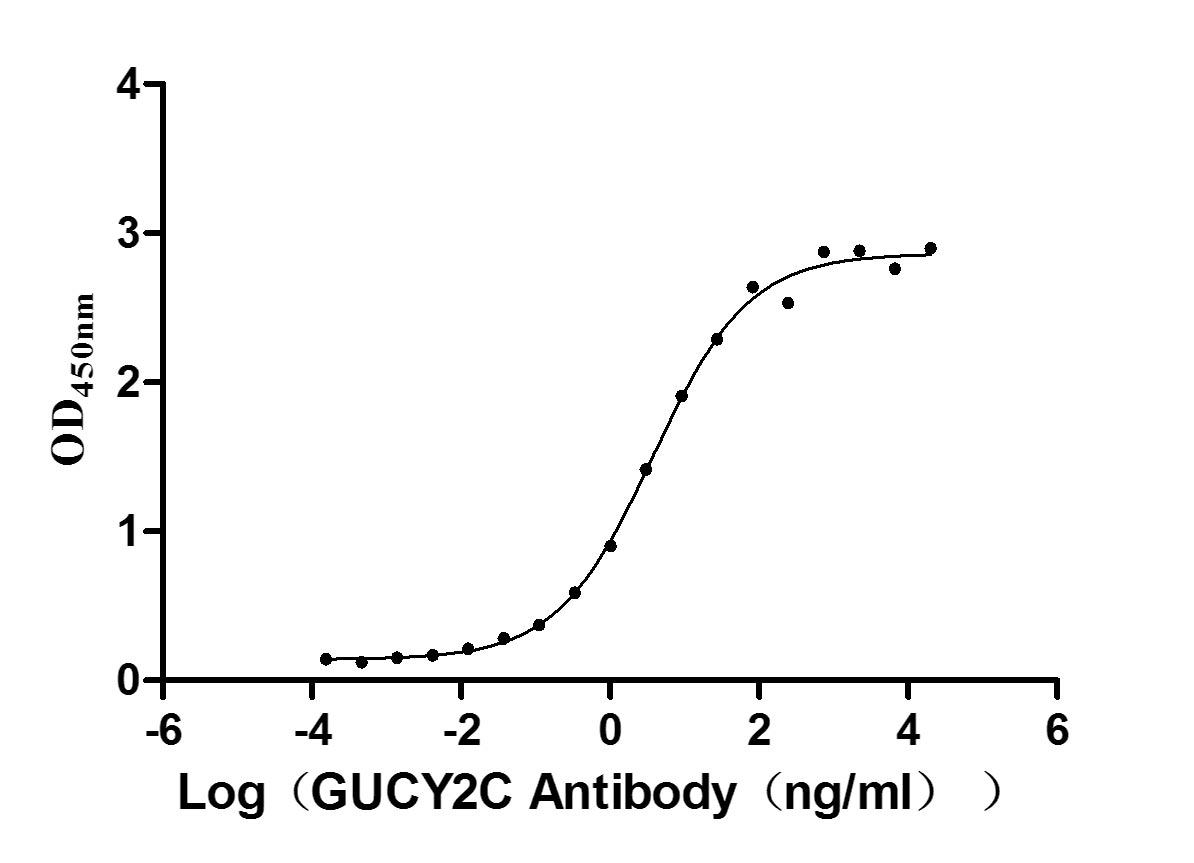
-AC1.jpg)
